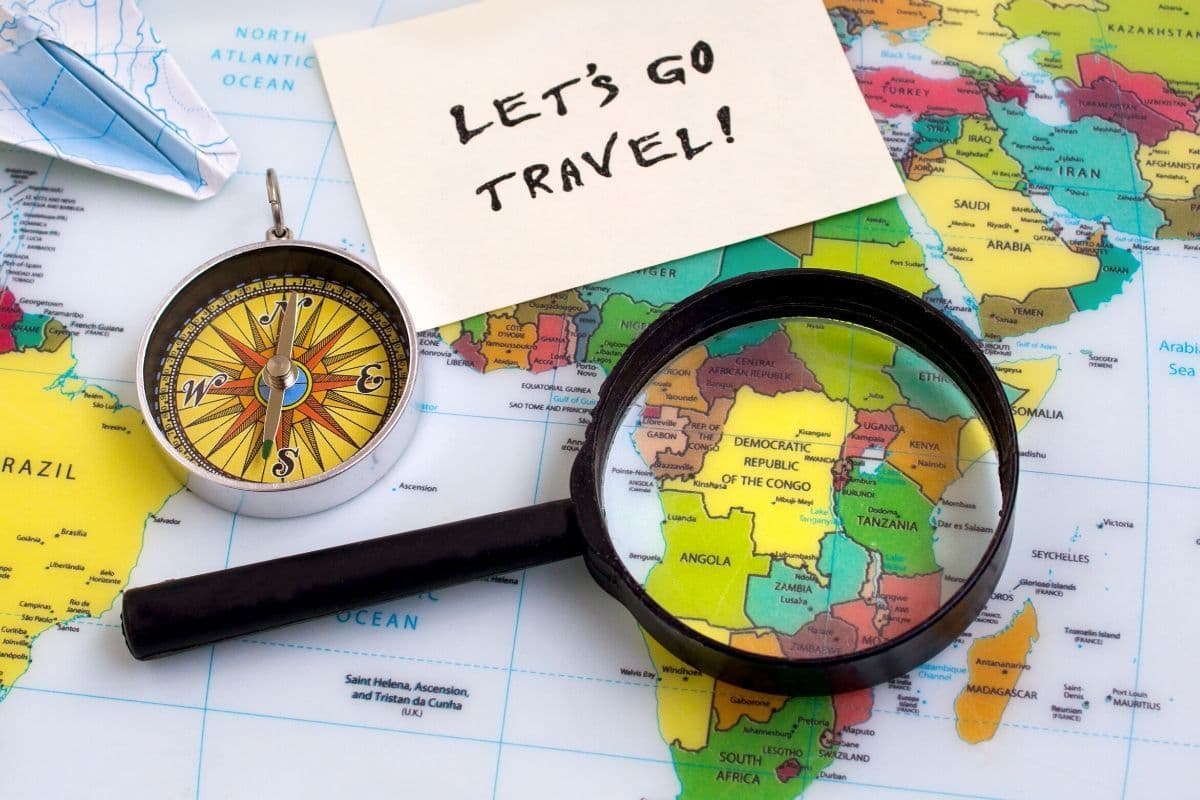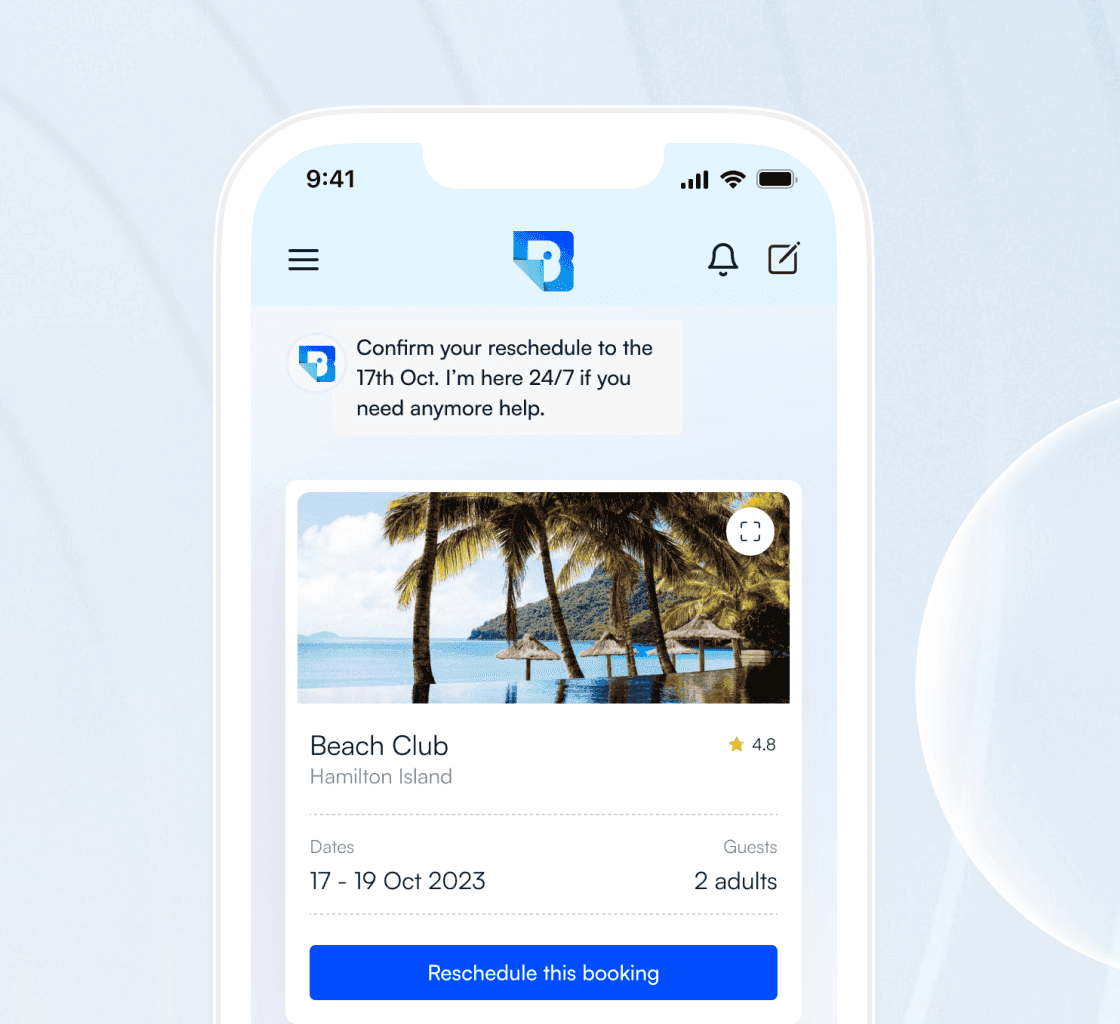
How AI Travel Assistants Save You Time and Money
How AI Travel Assistants Save You Time and Money
Discover how AI travel assistants help you book cheap flights, find hotels, and plan stress-free trips, saving you both time and money every step of the way.
But there’s good news: AI travel assistants are changing the way we plan and experience travel. These smart digital tools act like personal concierges, available 24/7 to help you find the best deals, organise your itinerary, and offer real-time support.Whether you're a frequent flyer, a once-a-year holidaymaker, or a business traveler trying to stay on budget, a virtual travel assistant can help you save serious time and money, without compromising on quality. Let’s break down exactly how.
1. Instant Access To The Best Deals On Flights And Hotels

One of the biggest hassles in travel planning is finding the perfect flight or hotel that fits both your budget and your travel style. Prices fluctuate constantly, and what seems like a great deal today might be overpriced tomorrow. Manually checking multiple platforms like Google Flights, Expedia, Skyscanner, and airline websites is tedious and overwhelming.That’s where an AI travel assistant shines. These tools scan hundreds of travel sites at once, using machine learning to compare real-time prices and predict the best times to book. Some AI tools even track fare history and alert you when prices drop or when a better deal becomes available. If you're looking to travel for first-class flights at economy prices, this kind of smart automation can make all the difference.For example, instead of manually searching for cheap flights to Bali, you could ask your AI assistant, “Find me return flights from Sydney to Bali under $500 in July.”Within seconds, the assistant combs through airlines, travel agencies, and loyalty programs to find the best results, and filters out anything that doesn’t match your budget, preferred airline, or travel time.You save time by:Skipping hours of online research.Letting the AI handle the search and comparison process.You save money by:Receiving alerts for flash sales, promo codes, or exclusive deals.Booking at the optimal time, based on real-time price trends.
2. Personalized Travel Recommendations That Work

Let’s be honest, generic travel guides aren’t always helpful. What works for one traveler might not work for another. You might love hidden cafes and scenic hikes, while someone else prefers guided tours and luxury experiences.An AI travel assistant doesn’t offer one-size-fits-all suggestions. Instead, it learns your habits, preferences, and offers the best budget flights. Over time, it gets smarter, recommending activities, hotels, restaurants, and even destinations that align with your interests.Imagine having a personal AI travel guide who already knows:You prefer boutique hotels over large chains.You love local street food and budget-friendly dining.You enjoy cultural experiences and avoid tourist traps.It will then tailor your itinerary to match your vibe, suggesting things you’re genuinely likely to enjoy, not just the highest-rated attractions.You save time by:Receiving targeted, relevant recommendations.Skipping irrelevant suggestions that don’t match your travel style.You save money by:Choosing experiences that offer real value.Avoid overpriced tourist traps or activities that aren’t worth it.
3. Smart Itinerary Planning With Zero Stress

Planning the day-to-day details of your trip can quickly become overwhelming. You’ve booked your flights and hotel, but now you need to figure out what to do, when to do it, how to get around, and where to eat. That’s a lot to handle.Your AI travel assistant takes over this part, too. With just a few inputs like your destination, travel dates, interests, and daily budget, it builds a complete itinerary for you. It considers the opening hours of attractions, average time needed at each stop, travel time between locations, and even weather conditions. Some platforms even let you edit the itinerary on the fly or sync it with maps and booking confirmations.Let’s say you’re visiting Paris for 4 days. Your assistant can schedule:A visit to the Louvre on a day it’s open late.A Seine River cruise at sunset.A walking food tour in the Marais district.Time for rest, meals, and spontaneous exploration.You save time by:Letting AI automate a detailed daily plan.Avoiding the hassle of jumping between websites and guidebooks.You save money by:Reducing idle time (getting more value from each day).Discovering affordable or free experiences.
4. Real-Time Support When Things Go Wrong

Travel comes with unexpected twists. Flights get delayed. Bookings get cancelled. You might arrive at your hotel only to find out there’s an issue with your room. Normally, solving these problems takes time, patience, and long calls with customer service.But with an AI travel assistant, you have instant help in your pocket. If your flight is delayed, the assistant can immediately show alternative flights and help you avoid layovers. If your hotel is overbooked, it will suggest available options nearby, based on your budget and ratings. Some AI assistants even handle cancellations or rebookings directly through integrated platforms.This kind of support isn’t just helpful, it can be a trip-saver.You save time by:Skipping call center queues or support emails.Getting instant solutions and alternatives.You save money by:Avoiding expensive last-minute decisions.Recovering refunds or using loyalty points efficiently.
5. One Platform, Everything You Need

Imagine this: no more hunting through your inbox for confirmation emails. No more bouncing between a flight app, a hotel app, and an itinerary builder. A true AI travel assistant brings everything together in one place.Many of these platforms include:Booking confirmation storageOffline access to travel documentsLive updates for flights, weather, and trafficIntegration with maps, calendar apps, and even ridesharesSome AI assistants also work with voice commands. You can simply say:“What time is my flight tomorrow?” “Find a sushi restaurant near my hotel.” “Remind me to check out of my Airbnb at 10 am.”The goal is simple: take the stress out of travel by making everything accessible and seamless.You save time byHaving all trip details organized in one place.Using voice or chat features to make changes on the go.You save money by:Avoiding hidden fees or double bookings.Unlocking loyalty deals and travel partner discounts.
Real-World Example: A Quick Weekend Trip
Let’s say you’re planning a spontaneous weekend in Melbourne. You have a $500 budget, two free days, and no time to plan. You tell your AI travel assistant:“I want to fly to Melbourne this Friday after 5 pm, return Sunday night, stay at a hotel near the CBD, and keep the total under $500.”Within moments, the assistant finds return cheap flights, a boutique hotel with solid reviews, and even adds local recommendations like:Coffee at Degraves Street.A night walk at the Royal Botanic Gardens.Tickets to the National Gallery of Victoria.You confirm the bookings, receive a digital travel guide, and your smart trip planning itinerary is done. What would have taken you 5+ hours of planning was completed in under 10 minutes.
Conclusion
In a world where time is short and prices change fast, using a smart travel assistant makes sense. These tools offer more than convenience; they offer control. From finding the best flights and hotels to building a stress-free itinerary, AI travel guides are making travel simpler, smarter, and more affordable.If you're someone who loves to travel but hates the planning part, now’s the time to let technology take the lead. With a trusted AI travel assistant, you’ll spend less time staring at screens and more time making memories.Download the Booked AI app from the App Store or Google Play Store.
